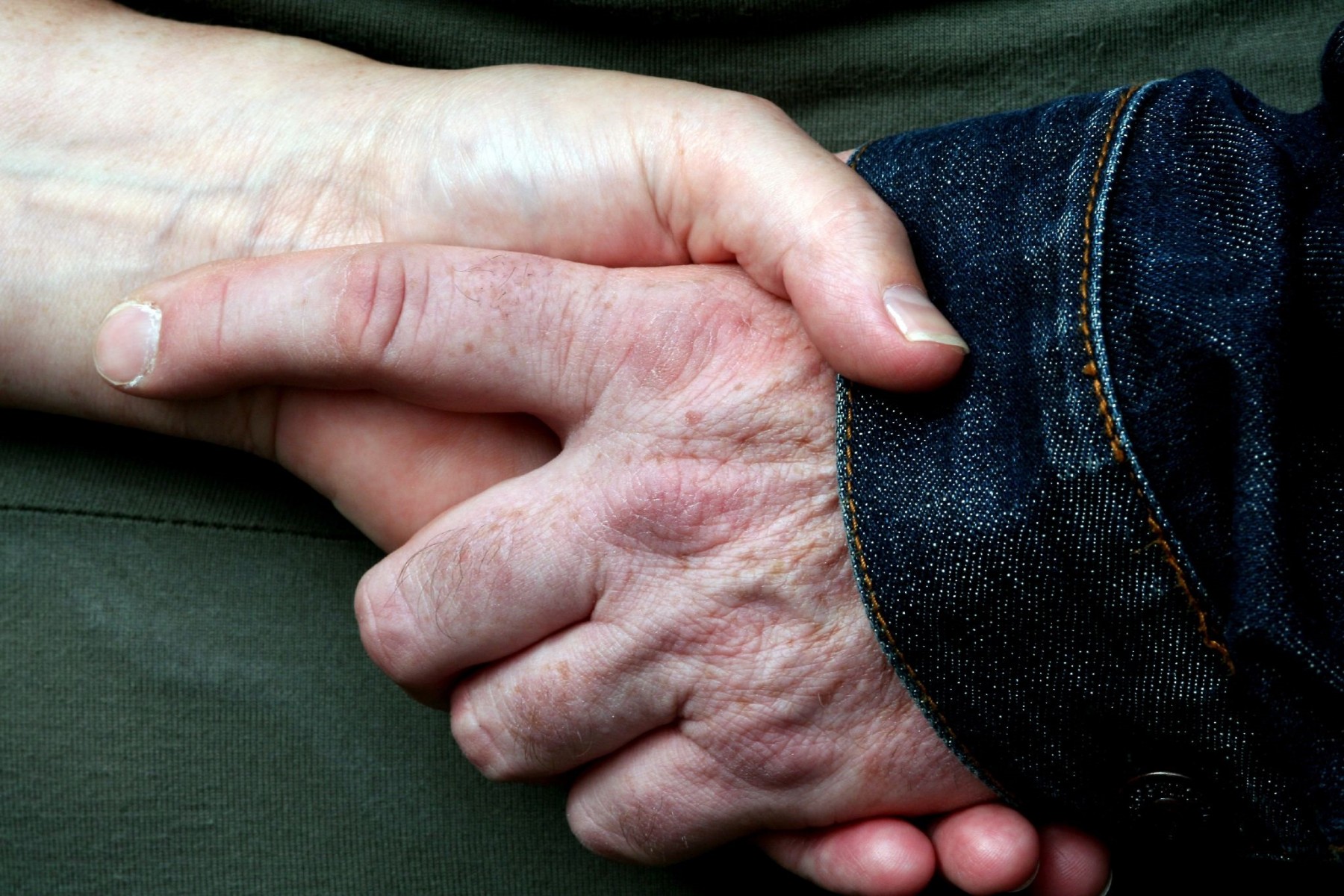New study reveals huge contribution of carers of terminally ill
A landmark new study has revealed that family carers of people with cancer are providing care beyond the safe working hours recommended to preserve their health and well-being.
The Dimbleby Cancer Care-funded study has revealed that family carers of people with cancer on average provide almost 70 hours of care a week to look after their relatives in the last three months of life.
The study, led by The University of 优蜜传媒 in partnership with universities in Newcastle and Groningen, has been published in this month’s Palliative Medicine.
The team received responses from 1,504 carers through a national postal survey in the autumn of 2015. The survey was sent via the Office for National Statistics to 5,271 relatives who registered a death in May 2015. Local carers groups helped shape the material.
The survey revealed:
- The main type of care provided was social/emotional support but carers also undertook considerable practical help, personal care and healthcare tasks
- Carers had an average of £370 out of pocket expenditure during the last three months of the decedent’s life
- A quarter of carers spent £100 of this on additional medical equipment and care supplies
- One in six had ‘one off expenses’ during their whole time care-giving with costs of £2,000
- Most of the care in the study - around 75% - was carried out at home.
The research team studied the work of carers by tasks including preparing food, shopping, cleaning, attending appointments and general administration.
Working in partnership with the National Institute for Health Research Collaboration for Leadership in Applied Health Research and Care, Greater 优蜜传媒 (), , Professor of Palliative Care at The University of 优蜜传媒 led the study - she believes this research highlights the fact that carers are an invaluable resource who should get much more support.
She said: “This study for the first time quantifies the valuable hours carers give to their relatives and friends nationally in the final three months of life. Our figure of 69.5 hours a week is indicative of the huge contribution they make. This is a lot higher than the hours of care giving reported in the population in general and comes at a great cost to carers’ own psychological and physical health.
“Carers are a huge resource and provide vital support to people at the end of their life. The social and emotional support they provide is a huge commitment, but they also undertake a great deal of practical help, personal care and healthcare tasks. It is carers who are there 24/7. Community health and social care staff are simply unable to deliver care round the clock care, which is why we need to invest in carers too.
“Carers need both support that gives them the know-how to look after the person who is ill and support to preserve their own health and well-being. Health and social care staff can here make a big difference in making sure carers’ support needs are assessed and addressed. Additionally, workplace, respite and financial support can all play a meaningful part in supporting carers.”

The research by Professor Grande and her team illuminates a really grave issue. I have had personal experience of caring for someone with terminal cancer. It is draining in every way. Through the work that Dimbleby Cancer Care does we know how vital informal care is and the huge economic contribution it makes to the NHS and social services. Building on research like this, the work we support at our cancer centre in the Guy's Cancer Centre helps to ease the burden on patients and carers in a wide variety of ways - information, psychological support, complementary therapies and benefits advice. It is a very important and challenging task
was set up in 1966 in memory of broadcaster Richard Dimbleby, and is based at Guy’s Cancer Centre in Southwark, London. It provides practical and psychological support to people living with cancer and to their families and carers. The charity is also developing a website resource to help people find care and support services nearest to them.
The Dimbleby Cancer Care Research Fund awards up to £300,000 per year to research projects looking at all aspects of cancer care. Chair of the charity, broadcaster, Jonathan Dimbleby said:
“The research by Professor Grande and her team illuminates a really grave issue. I have had personal experience of caring for someone with terminal cancer. It is draining in every way. Through the work that Dimbleby Cancer Care does we know how vital informal care is and the huge economic contribution it makes to the NHS and social services. Building on research like this, the work we support at our cancer centre in the Guy's Cancer Centre helps to ease the burden on patients and carers in a wide variety of ways - information, psychological support, complementary therapies and benefits advice. It is a very important and challenging task.”
This is the first of three sets of findings to be published from the study. Results focusing on the emotional distress and wellbeing of the carers and the economic value to society of their work will be published at a later date.
The paper, '', was published in Palliative Medicine. DOI:10.1177/0269216317690479
Cancer
is one of The University of 优蜜传媒’s - examples of pioneering discoveries, interdisciplinary collaboration and cross-sector partnerships that are tackling some of the biggest questions facing the planet. #ResearchBeacons
